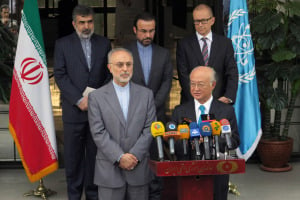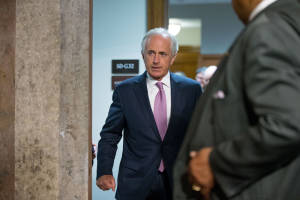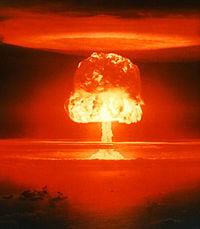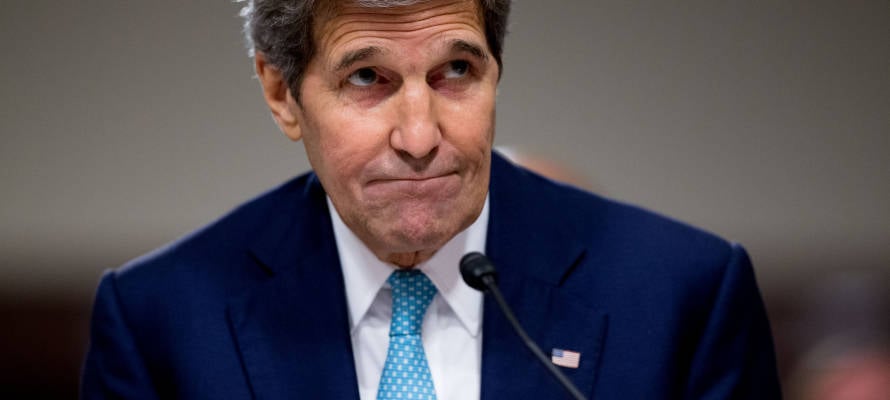Members of Congress are frustrated at the Obama administration’s lack of transparency with regard to side agreements between the IAEA and Iran concerning nuclear inspections.

Ali Akbar Salehi (L), head of Iran’s nuclear program, with IAEA general director Yukiya Amano. (IAEA)
US senators, during a Foreign Committee session with Secretary of State John Kerry, expressed frustration at the lack of transparency on the part of the Obama administration regarding technical details of the Iranian nuclear deal. In particular, they are concerned by the lack of information on “side deals” between the IAEA and Iran, such as who will be responsible for gathering soil samples of suspected nuclear sites.
Senator Tom Cotton and Representative Mike Pompeo sounded the alarm after being informed by International Atomic Energy Agency (IAEA) officials in Vienna that there were side agreements between the IAEA and Iran that had not been included among the materials sent to Congress for review. The State Department denied the existence of “secret side agreements.”
“There’s no side deals, there’s no secret deals, between Iran and the IAEA that the P5+1 has not been briefed on in detail. These kinds of technical arrangements with the IAEA are a matter of standard practice, that they’re not released publicly or to other states, but our experts are familiar and comfortable with the contents, which we would be happy to discuss with Congress in a classified setting,” said State Department Spokesman John Kirby at a Thursday press briefing.
However, Secretary of State John Kerry did not satisfy the concerns of the Senate Foreign Relations Committee about the side deals. “Is it true that the Iranians are going to be able to take the samples [at Parchin] as Senator Risch said? Because chain of custody means nothing [if] at the very beginning what you [are] going to get is chosen and derived by the perpetrator,” noted Sen. Robert Menendez (D-NJ).
“It’s part of a confidential agreement between the IAEA and Iran as to how they do that,” Kerry replied, adding, “The IAEA has said that they are satisfied that they will be able to do this in a way that does not compromise their needs and that adequately gets the answers they need.”

Chairman Sen. Bob Corker arrives to hear John Kerry. (AP/Andrew Harnik)
Kerry further frustrated the senators by saying that the US had never aimed to dismantle Iran’s entire nuclear program nor sought “anytime, anywhere” inspections.
“Nobody has ever talked about dismantling their whole program,” Kerry said. “Under this program, Iran has agreed to remove 98 percent of its stockpile of enriched uranium… Iran has agreed to refrain from acquiring enriched uranium or weapons grade uranium.”
Committee chairman Sen. Bob Corker (R-TN) said in his opening statement, “I believe we’ve been fleeced and in the course of being fleeced you turned Iran from being a pariah into Congress being a pariah.”
“A few weeks ago, you said that no deal was better than a bad deal. What you say now is that somehow if Congress were to turn this down, the only option is war,” he stated.
By: Sara Abramowicz, United with Israel

Sign the Petition to Stop a Nuclear Iran
The US Congress must ensure that sanctions against Iran remain in force until the nuclear threat is completely eliminated.
I strongly oppose easing sanctions before the nuclear threat from Iran has been eliminated. Allowing Iran to enrich uranium without being subject to 'anytime, anywhere' inspections is extremely dangerous and unacceptable. Iran's nuclear program must be stopped.
See our Privacy PolicyClick Here to Share the Petition with Your Friends
Click here to locate and contact your Senator.
Click here to locate and contact your Congressman.
